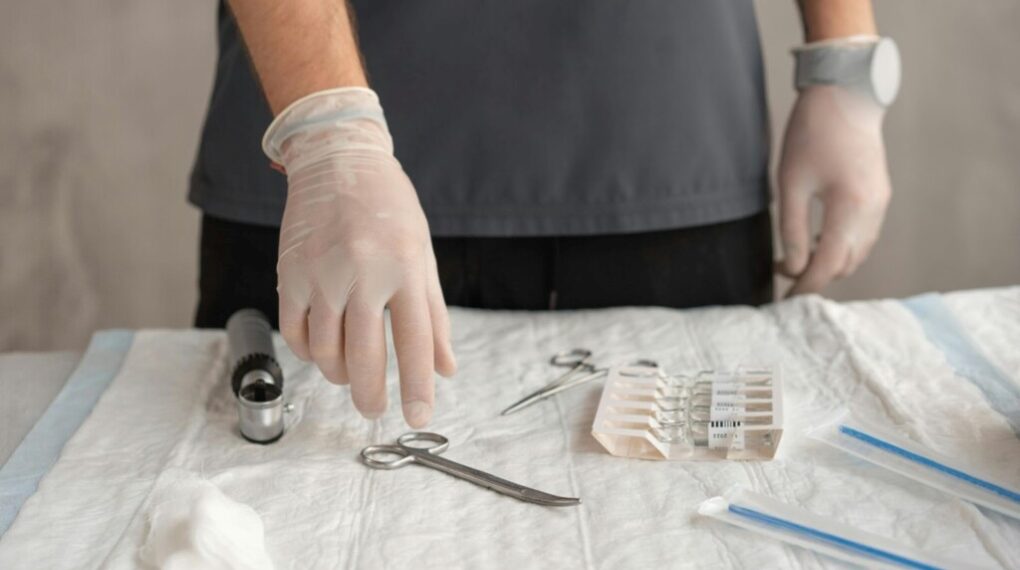Figuring out the right career can be quite a journey. So many options. So many dead ends. But if you’re looking for something hands-on, meaningful, and in-demand, becoming a surgical technologist might just hit the spot. This job is growing fast. It also gives you the chance to help people every single day.

The Role of a Surgical Technologist
Surgical technologists are indispensable in the OR. They don’t just stand around. They make sure everything runs smoothly before, during, and after surgery. They set up the room. They arrange surgical tools. They help the surgical team stay organized and sterile.
Surgical techs also help with preparing patients. They make sure surgical gowns and drapes are sterile. They assist with counting supplies before and after the procedure.
You don’t need to spend years in school to step into this field. Many people get their start by enrolling in programs at accredited institutions that offer surgical technology training. These schools focus on real-world skills. That way, you’re job-ready without wasting time on unrelated classes.
What Does a Typical Day Look Like?
No two days are the same when you work in surgery. One day, you might assist in a routine procedure. The next day, you could be helping with something complex. Surgical techs check equipment. They prep patients. They pass instruments to the surgeon during the procedure. Speed matters. So does attention to detail.
The work can be intense. It can also be incredibly rewarding. Surgical techs are part of life-changing moments. They help save lives and improve patient outcomes.
Some days start early or end late. Not all surgeries happen between 9 and 5. Being flexible is very important. Some techs even help with emergency surgeries, which makes things even more exciting.
Skills That Make You Stand Out
This isn’t a job for someone who likes to sit still. Surgical technologists stay on their feet most of the day. They also need to stay sharp. Quick thinking and strong focus are must-haves. You’ll be working with sharp instruments. Sterile conditions must be maintained at all times. One small mistake could have big consequences.
Good communication helps too. You’ll be part of a team. Surgeons, nurses, anesthesiologists—everyone works together. Being able to follow instructions and stay calm under pressure can set you apart.
Physical stamina also plays a role. Standing for long periods can be tough. Having steady hands and sharp vision really makes a difference. The smallest details matter when you’re assisting in surgery.
How to Become a Surgical Technologist
The first step is education. You’ll need to go through a surgical technology program. Typically, these programs last about one to two years. Many community colleges, technical schools, and accredited educational institutions provide the right kind of coursework.
Anatomy, medical terminology, surgical procedures, and infection control are some of the topics that are covered in classes. In addition to this, you will have the opportunity to put what you have learned into practice in clinical settings.
There are even programs that provide opportunities for externships or partnerships with hospitals. As you are gaining knowledge, you’ll get the chance to form genuine connections. In addition, it makes the process of transitioning into the workforce easier.
Certification Matters
By the time you have finished your training, you will want to earn professional certification. In spite of the fact that it is not always necessary, it can increase your chances of being hired. The Certified Surgical Technologist (CST) credential is the one that is most frequently obtained.
Passing the exam shows that you know your stuff. Employers notice. Certification can also open doors to higher pay or more specialized positions.
Continuing education is important too. Some techs go on to earn advanced certifications. This can lead to more responsibilities or leadership roles in the surgical team.

Perks of the Job
Becoming a surgical technologist doesn’t just bring job stability (though that’s nice). It’s a career that feels alive. You’re not chained to a desk or crunching numbers—you’re in the OR, helping patients pull through.
Unlike some healthcare roles, you don’t need a decade of school to start. Affordable programs and flexible schedules (think evening or part-time classes) make it doable, even if you’re juggling work or family. Every surgery you assist is a win, giving you that rare job satisfaction that’s hard to beat.
Wrapping Up
If you’re ready for a career that’s equal parts action, purpose, and stability, surgical technologist could be your calling. Start by scoping out accredited schools with solid surgical technology training. It’s not just a job; it’s a chance to be part of something bigger, helping patients and building a future you’re proud of. So why wait? The operating room is calling.


